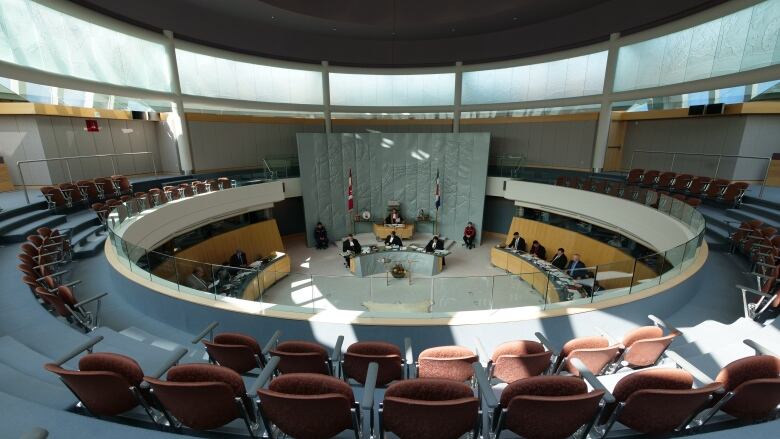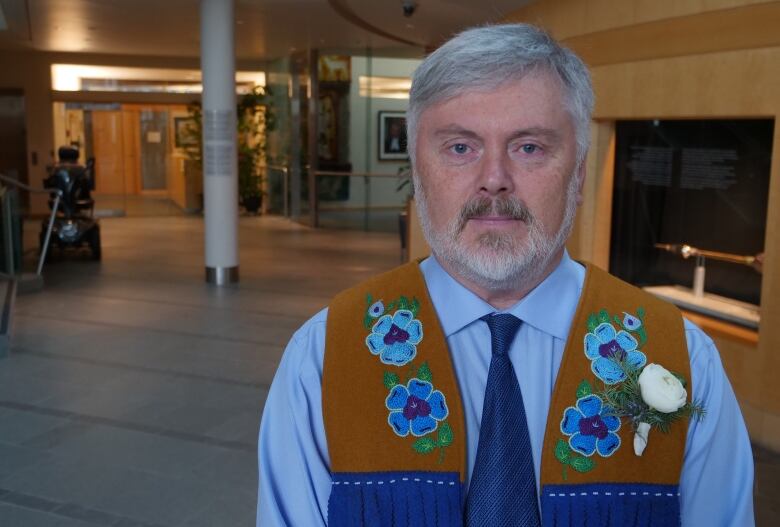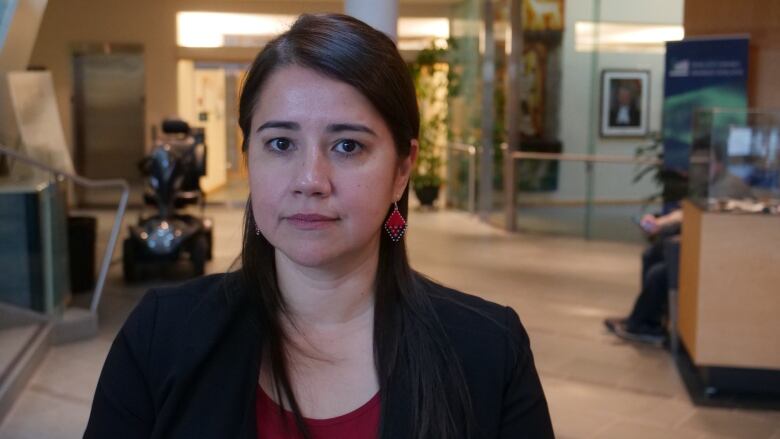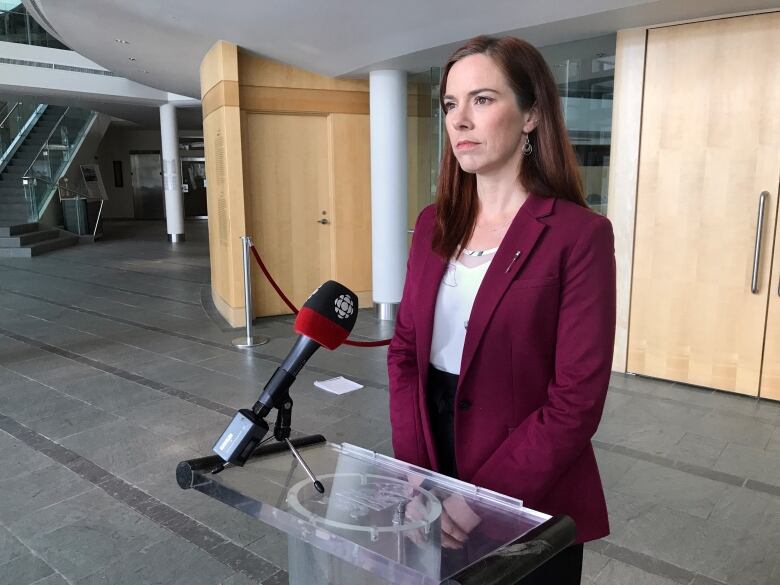How has COVID-19 affected the N.W.T. budget? MLAs to push for answers in upcoming session
MLAs will pick up the budget approval process this week, after pandemic suspended spring session

As the first wave of COVID-19 appears to recede, little by little, the Northwest Territories is emerging from the widespread spring shutdown.
The territory's MLAs are taking another step toward normalcy, heading back to the Legislative Assembly Tuesday. Apart from new health and safety restrictions in the building, things will look as they always do.MLAs will question ministers, and the government will respond, release reports and defend its work.
But this likely won't be an ordinary spring session.
The government will be pressed on its response to COVID-19 after two months with little oversight in the Legislative Assembly.It will have to pass a budget amid an economic crisis and will need to work with regular MLAs who, after seeing what's been accomplished in the past few months, say they'll be pushing for more.
Taking stock of the COVID-19 response
Since all five of the Northwest Territories' confirmed cases of COVID-19 recovered, and the disease failed to gain a foothold in the territory this spring, few MLAs are likely to criticize the government's health policies.
Instead, the pressure will likely be on how the government is responding to the economic crisis caused by COVID-19.
Is our trajectory changing? Because I don't remember many governments having to deal with a pandemic- Lesa Semmler, MLA, Inuvik Twin Lakes
"I don't think our economic recovery efforts have been as focused and timely as they can and should have been," said Frame Lake MLA KevinO'Reilly.
He used the government'srecent announcement of $4 million available through its support for entrepreneurs program as an example, noting MLAs approved spending that money in March.
"Why did it take eight weeks to open up the program?" he said. "That's one of our key instruments in providing funding to small businesses. I just don't get why it took eight weeks."

He's also questioning the work of the territory's economic advisory panel, which is still getting off the ground.
O'Reilly likely won't be alone in putting these questions to government ministers as MLAs face questions of their own from constituents eager to find out what's next.
Passing the budget
MLAs agree passing the rest of the operational budget is the most important task over the three-week session, but they'll also want to see an accounting of the government's COVID-19 spending so far.
"We need to figure out where we are financially, what we've spent on this," said Lesa Semmler, the MLA for Inuvik Twin Lakes.
"What's the future for the next three-and-a-half years. Is our trajectory changing? Because I don't remember many governments having to deal with a pandemic," she said.

When the session was suspended in March, MLAs were mid-way through passing the first budget in their four-year mandate.
The $1.9-billion operations budget, by most accounts,was not particularly ambitious, proposing little in the way of drastic spending increases. But it did include $25 million over four years on new mandate priorities, which is roughly the value of the territory's COVID-19 relief programs so far.
- Need a refresher on what's in the N.W.T.'s 2020 budget? Here's what you need to know.
First, MLAs will look at the operations budget, which will remain as it was when the session ended in March. That budget was made up of what the departments planned to spend at the beginning of the year and will remain mostly unchanged.
"The departments' budgets haven't changed," Finance Minister Caroline Wawzonek said. "The fiscal picture has changed a bit but the actual numbers in terms of the departments functioning have not.
"As we've been rolling out our relief, a lot of that relief, on our end, has come from essentially giving up any revenues," she said. "We expect that to continue as taxes or other things that would've come due are being deferred."

Accounting for how COVID-19 has affected the government's finances will largely be addressed through supplemental spending bills, Wawzonek said.
That's where MLAs and the public can see new money coming in from Ottawa, new COVID-19 spending, and what thenew fiscal situation looks like, Wawzonek said.
"I know that the other members are quite rightly going to be looking for an opportunity to begin that process of accountability and transparency," Wawzonek said. "It's certainly my intention to give as much information as we have."
Changing priorities?
It will be interesting to see how MLAs and the government change or adapt their priorities over the coming weeks and months. Shortly before COVID-19, they collectively released 22 priorities for the next four years.
What happens to those now?
Some ideas, like managed alcohol programs, are up and running. There's significantly more space for people who are homeless and there havebeen significant reforms to income assistance and telehealth.
Others may move down the list as the government continues to focus on subsequent waves of COVID-19.
"I always believed that the GNWT(government of Northwest Territories) could be nimble and move quicker and I didn't buy a lot of the answers you get" about why certain projects took a long time, said Rylund Johnson, the MLA for Yellowknife North.
"In many areas we've proven that that's just not true. If we want to move quickly, we can," he said. "It's going to be tough for the government to fall back to the old status quo that we can't make a decision hastily."












_(720p).jpg)


 OFFICIAL HD MUSIC VIDEO.jpg)
.jpg)



























































































